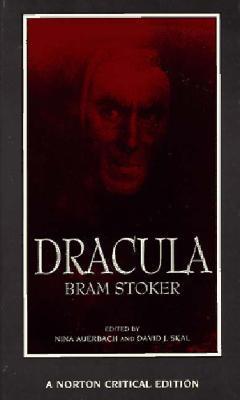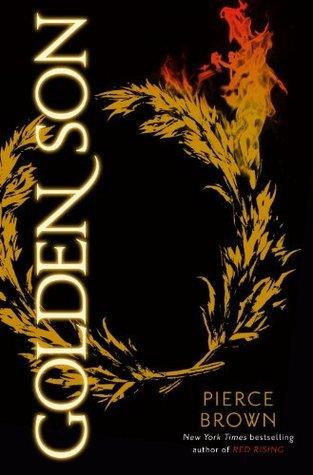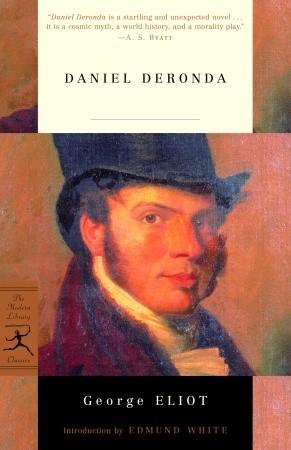Dracula by Bram Stoker Book Summary
Discover the captivating world of Bram Stoker's "Dracula" with our comprehensive summary, key insights, and in-depth review. Uncover the themes, characters, and the chilling allure of this classic gothic novel that continues to haunt readers today. Dive in and explore the legacy of Dracula!
Dracula Book Summary
Bram Stoker's Dracula remains one of literature's most enduring and influential gothic horror masterpieces, introducing the world to the iconic vampire Count Dracula. Published in 1897, this epistolary novel weaves together themes of Victorian anxieties, sexual repression, and the clash between modernity and ancient evil through letters, diary entries, and newspaper clippings. The story follows Jonathan Harker's terrifying encounter with the Count in Transylvania and the subsequent battle to save London from the vampire's spreading curse. Stoker's masterful blend of supernatural terror, psychological depth, and social commentary created a timeless tale that continues to captivate readers and inspire countless adaptations across all media.
Discover a comprehensive overview, critical review, and essential insights into Wuthering Heights by exploring the detailed Wuthering Heights Book Summary, Review & Key Insights for a deeper understanding.
Dracula by Bram Stoker - Introduction
I just finished reading Dracula by Bram Stoker, and honestly, I had no idea how psychologically complex a vampire story could be. You’d think it’s just about spooky castles and bloodsucking, right? But what really surprised me was how the novel dives into themes of fear, desire, and even the clash between modern science and ancient superstition. It made me rethink how horror isn’t just about scares—it’s about what those scares say about us.
I picked up Dracula initially because I wanted to explore a classic that everyone talks about but I’d never actually read. Plus, I was curious about how a story written in 1897 could still feel relevant and chilling today. Spoiler: it totally does.
If you’re someone who loves classics, or you’re into horror and paranormal tales with a gothic twist, this book is a goldmine. It’s also perfect if you enjoy stories that blend fiction, fantasy, and literature with a deep, atmospheric vibe. And hey, if you’re not big on reading, the audiobook version is fantastic—just over 488 pages, so expect to spend around 15-20 hours immersed in it.
So, if you want a story that’s more than just vampires and scares—something that really makes you think and feel—Dracula is totally worth your time. Trust me, you’ll come away with a new appreciation for what horror can actually do.
What is Dracula About?

"Dracula" by Bram Stoker is a gothic horror novel that follows the journey of Jonathan Harker as he encounters Count Dracula, a vampire who seeks to spread his undead curse in England. The book's main message highlights the battle between good and evil, emphasizing the dangers of unchecked desires and the importance of unity in overcoming darkness. Key concepts include the exploration of fear and the unknown, the struggle for power and control, and the impact of modernity on traditional beliefs, as the characters confront both supernatural and societal threats.
About Book Author - Bram Stoker
Tonight, we have a truly fascinating mind with us, Mr. Bram Stoker.
-
Bram Stoker didn't start out as a full-time novelist, you know. He spent years immersed in the dramatic world of the Lyceum Theatre alongside Henry Irving. It was this, and perhaps a mysterious childhood illness that confined him for years, that cultivated his profound understanding of unseen forces and the human psyche under pressure, elements so vivid in Dracula.
-
What's interesting about Bram Stoker, and a detail often overlooked, is his meticulous, almost obsessive, research into Eastern European folklore and the occult, years before Dracula ever saw the light of day. He wasn't just telling a story; he was unearthing ancient fears.
-
His true gift lies in weaving these dark threads of myth with the very real anxieties of his era. This ability to tap into collective fears is also evident in his other explorations of the uncanny, such as The Lair of the White Worm and the thrilling mystery of The Jewel of Seven Stars.
-
It's this unique combination – his theatrical grounding, deep personal fascination with the unknown, and dedicated research – that made him so uniquely qualified to bring a creature of such enduring terror to life.
More Books To Find
Dracula - Book Overview
Dracula is essentially a story about the clash between modernity and ancient evil. It follows a young lawyer named Jonathan Harker who encounters Count Dracula, a centuries-old vampire, while trying to help him purchase property in England. The novel dives into themes of fear, sexuality, and the unknown, making it a fascinating exploration of human psychology.
Bram Stoker wrote it not just to scare people, but to reflect societal anxieties of his time, particularly about immigration and the fear of the ‘other.’ Dracula symbolizes the threat of foreign influence, which was a hot topic in the late 19th century.
What sets Dracula apart from other vampire stories is its format. It’s written as a series of journal entries, letters, and newspaper clippings, which adds a sense of realism and urgency. This epistolary style makes you feel like you’re piecing together a puzzle, which heightens the suspense.
One specific story that stuck with me is when Lucy Westenra, a beautiful young woman, begins to waste away after being bitten by Dracula. Her transformation from a vibrant girl to a lifeless creature is haunting, and it really drives home the idea of losing one’s humanity. It’s a powerful reminder of how fear and darkness can consume us, which is something that resonates even today.
Key Insights of Dracula
Dracula is a seminal work in Gothic literature, exploring themes of fear, desire, and the clash between modernity and ancient superstition.
1. The Power of Fear: The novel illustrates how fear can manipulate and control individuals. Count Dracula embodies this fear, representing the unknown and the supernatural that challenges Victorian societal norms.
2. The Role of Women: Stoker presents complex female characters, particularly Mina and Lucy, who reflect the tension between traditional gender roles and emerging female independence. Their transformations highlight societal fears regarding female sexuality and autonomy.
3. Modernity vs. Tradition: The story juxtaposes modern technology (like typewriters and telegraphs) with ancient folklore. This conflict emphasizes the struggle between rationality and superstition, as characters rely on both science and faith to combat Dracula.
4. The Uncanny and the Other: Dracula represents the 'Other', a foreign entity that disrupts the familiar. His invasion of England symbolizes fears of immigration and cultural contamination during the Victorian era, making the reader question the boundaries of civilization.
5. Friendship and Loyalty: The bonds among the characters, particularly the men in their quest to defeat Dracula, underscore themes of friendship and loyalty. Their collective effort highlights the importance of unity in overcoming evil, suggesting that love and camaraderie can triumph over darkness.
These insights reveal the multifaceted nature of Dracula, showcasing its relevance to contemporary discussions about fear, identity, and societal change.
Who Should Read This Book
"Dracula" by Bram Stoker is a must-read for fans of gothic literature, horror enthusiasts, and those intrigued by the complexities of human psychology and morality. Readers who appreciate rich, atmospheric storytelling and historical contexts will find it captivating. It's also ideal for anyone interested in the evolution of vampire mythology and its cultural impact. Additionally, literature students and scholars can explore its themes of fear, desire, and the clash between modernity and the supernatural. Ultimately, "Dracula" appeals to anyone seeking a thrilling and thought-provoking literary experience.
Read If You Are
- a fan of classic Gothic literature and horror stories
- interested in the psychological and supernatural themes of fear and desire
- looking to explore the origins of modern vampire mythology and its cultural impact
Skip If You Are
- Not a fan of classic literature or Gothic horror.
- Disinterested in slow-building suspense and character development.
- Prefer modern storytelling styles over Victorian-era prose.
Important Takeaways from this Book
-
Establish Boundaries: Identify areas in your life where you feel overwhelmed or drained. Set clear boundaries to protect your time and energy. This matters because having defined limits helps you maintain focus and reduces stress. Consider what activities or people are draining your resources and communicate your limits clearly.
-
Cultivate Relationships: Reach out to friends or family you haven't connected with in a while. Schedule a coffee date or a phone call. Strong relationships provide emotional support and can enhance your well-being. Ensure you choose individuals who uplift you and share mutual interests.
-
Document Your Experiences: Start a journal to document your thoughts, feelings, and daily experiences. This practice can enhance self-reflection and clarity in your life. Consider setting aside a specific time each day to write, making it a regular habit for better results.
-
Embrace Change: Identify one area in your life where you feel stagnant and take a small step to change it. This could be trying a new hobby or adjusting your daily routine. Embracing change fosters personal growth and keeps life exciting. Be open to the discomfort that comes with stepping out of your comfort zone.
-
Practice Mindfulness: Dedicate 5-10 minutes a day to mindfulness or meditation. Find a quiet space, close your eyes, and focus on your breath. This practice reduces anxiety and increases overall happiness. Consider using a meditation app or guided videos to help you get started.
Book Review
When I picked up "Dracula" by Bram Stoker, I expected a straightforward horror novel filled with vampires and suspense. What I got was a rich tapestry of characters and a unique epistolary format that drew me into the story in unexpected ways.
One of the book's greatest strengths is its character development. I was particularly captivated by Mina Harker; her intelligence and resilience made her stand out in a sea of male characters. The letters and diary entries added depth, allowing me to experience the characters' emotions and thoughts intimately. The pacing was a bit uneven at times, especially in the middle sections, but the tension built up to a thrilling climax that kept me turning pages.
However, there were moments where the narrative felt drawn out, particularly in the lengthy descriptions of settings and events. While these details helped create an atmospheric backdrop, they sometimes slowed the story down. I found myself wishing for a more streamlined approach, especially in the middle chapters.
Comparing it to similar gothic novels like "Frankenstein" or "The Strange Case of Dr. Jekyll and Mr. Hyde," I appreciated Stoker's intricate storytelling but felt those other works had a tighter pace.
Overall, I enjoyed "Dracula" for its historical context and depth of character, but I can see why some might find it slow. I’d recommend it to fans of classic literature and gothic horror, but if you prefer fast-paced thrillers, this might not be your cup of tea.
Final Thoughts
If I'm being honest, finishing Dracula left me with a mix of fascination and unease. The intricate layers of gothic horror and psychological tension were compelling, but the pacing felt a bit slow at times. I'd definitely recommend this if you're into classic literature or enjoy a deep dive into the darker aspects of human nature. However, skip this one if you're looking for a quick, action-packed read; it requires patience and an appreciation for atmospheric storytelling.
The thing that surprised me most was how well Stoker crafted his characters, making them feel real and relatable, even in their supernatural contexts. Months from now, I think the haunting imagery and moral dilemmas will stick with me, especially the exploration of fear and desire.
As for whether I'd read it again, I think I'd prefer to recommend the full book rather than just a summary. There's something about immersing yourself in Stoker's language and style that a summary just can't capture. Overall, my reading experience was enriching, even if it was a bit unsettling at times. I’m glad I picked it up!
Frequently Asked Questions
How long does it take to read Dracula?
The average reading speed is about 30-50 pages per hour. For "Dracula," which has 488 pages, it typically takes 10-16 hours to read, depending on your pace. Enjoy the journey through this classic gothic tale!
What makes "Dracula" different from other books in this genre?
"Dracula" stands out due to its innovative epistolary format, blending letters, diary entries, and newspaper clippings. This unique structure offers multiple perspectives, enhancing realism. Stoker's deep exploration of themes like fear, sexuality, and the clash between modernity and superstition further distinguishes it within the gothic horror genre.
Who is the target audience for Dracula
The target audience for "Dracula" includes gothic literature enthusiasts, horror fans, and readers interested in Victorian themes. Its complex characters and exploration of sexuality, fear, and the supernatural appeal to both adult and young adult audiences seeking thrilling narratives and psychological depth.
Are there any criticisms or limitations of Dracula
Critics often point to Dracula's Victorian gender roles, lack of character development for women, and its pacing issues. Some also argue that the novel's reliance on epistolary format can create disjointed narratives, making it challenging for modern readers to engage fully with the story.
What is the main theme of Dracula by Bram Stoker
The main theme of "Dracula" by Bram Stoker revolves around the struggle between good and evil, the clash of modernity and superstition, and the fear of the unknown. It explores sexuality, power, and the consequences of unchecked desires, ultimately highlighting the battle for control over one's fate.
Tags:
Bram Stoker, Dracula, Dracula Book, Dracula Book Rating, Dracula Book Review, Dracula Book Summary, Dracula By Bram Stoker, Dracula Description, Dracula Short Summary

Michel Fisher
Michel Fisher is a passionate fiction enthusiast and book blogger who writes about emotional reads, character-driven stories, and contemporary romance authors that captivate hearts and minds.

Dracula
Book Overview
Description
You can find an alternative cover edition for this ISBN here and here.A rich selection of background and source materials is provided in three areas: Contexts includes probable inspirations for Dracula in the earlier works of James Malcolm Rymer and Emily Gerard. Also included are a discussion of Stoker's working notes for the novel and "Dracula's Guest," the original opening chapter to Dracula. Reviews and Reactions reprints five early reviews of the novel. "Dramatic and Film Variations" focuses on theater and film adaptations of Dracula, two indications of the novel's unwavering appeal. David J. Skal, Gregory A. Waller, and Nina Auerbach offer their varied perspectives. Checklists of both dramatic and film adaptations are included.Criticism collects seven theoretical interpretations of Dracula by Phyllis A. Roth, Carol A. Senf, Franco Moretti, Christopher Craft, Bram Dijkstra, Stephen D. Arata, and Talia Schaffer.A Chronology and a Selected Bibliography are included.
Key Points
Themes of fear and desire
Characters
Jonathan Harker, Lucy Westenra, Abraham Van Helsing, John Seward, Quincey Morris, Arthur Holmwood (later Lord Godalming), R.M. Renfield, Mina Harker, Quincey Harker, Peter Hawkins, Samuel F. Billington, Herr Leutner, Mr. Swales, Mr. Westenra, Mrs. Westenra, Lord Godalming (elder), Patrick Hennessey, Thomas Bilder, Sister Agatha (Dracula), Dr. Vincent, Thomas Snelling, Joseph Smollett, Sam Bloxam, Billington Junior, Attendant Hardy, Captain of the Demeter, Abramoff (Demeter Crew), Olgaren (Demeter Crew), Mate of the Demeter (Roumanian), Second Mate of the Demeter, Rufus Smith, Mr. Mackenzie, Mr. Steinkoff, Captain Donelson, Immanuel Hildesheim, Petrof Skinsky, Lady Godalming, Mrs. Seward, Dracula
Publisher
Norton
First Publish Date
05/26/97





